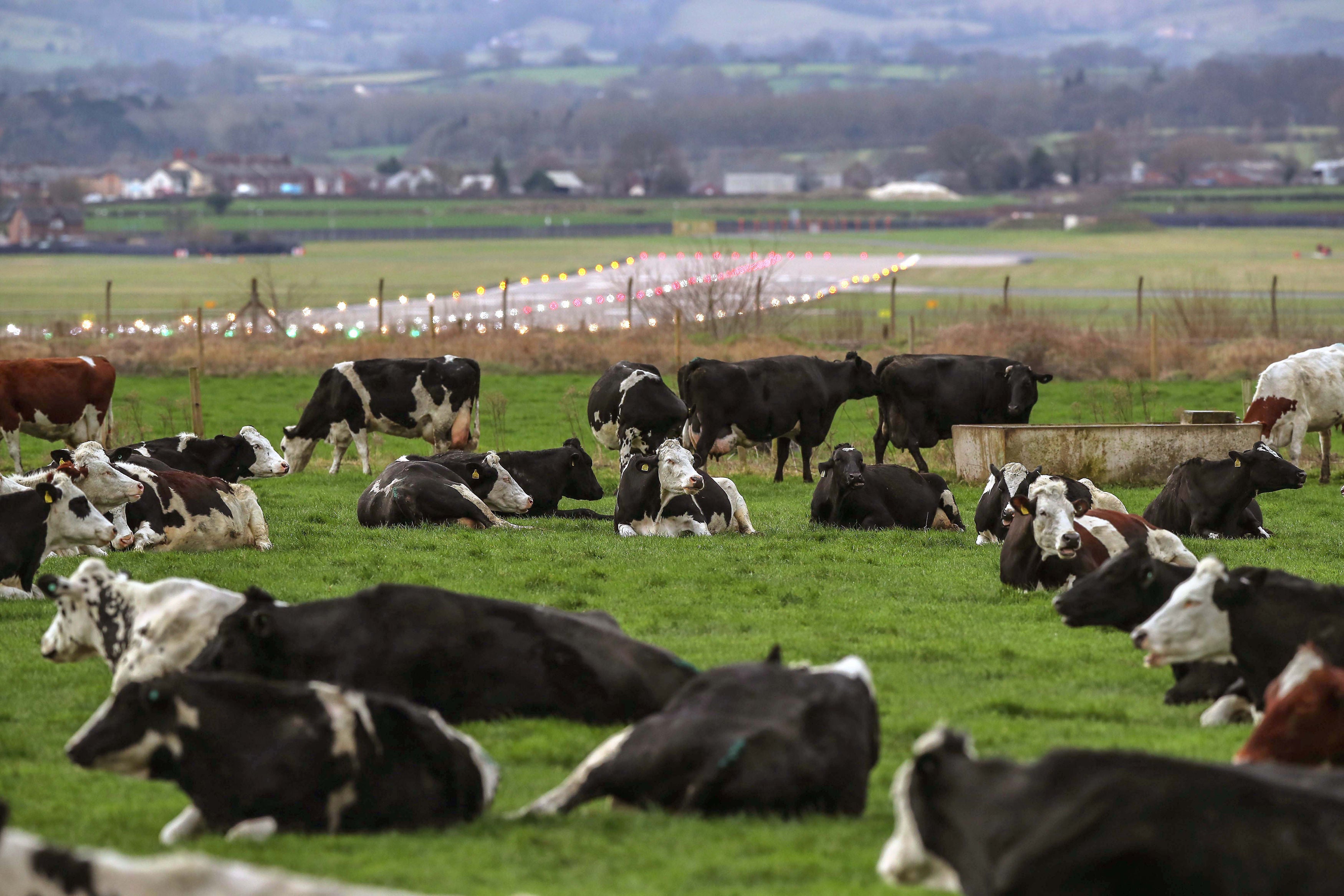Replacing 20% of beef with fungi alternative could halve deforestation – study
Study looks at impact of substituting a fifth of beef with protein produced by microbes such as fungi through fermentation by 2050.

Your support helps us to tell the story
From reproductive rights to climate change to Big Tech, The Independent is on the ground when the story is developing. Whether it's investigating the financials of Elon Musk's pro-Trump PAC or producing our latest documentary, 'The A Word', which shines a light on the American women fighting for reproductive rights, we know how important it is to parse out the facts from the messaging.
At such a critical moment in US history, we need reporters on the ground. Your donation allows us to keep sending journalists to speak to both sides of the story.
The Independent is trusted by Americans across the entire political spectrum. And unlike many other quality news outlets, we choose not to lock Americans out of our reporting and analysis with paywalls. We believe quality journalism should be available to everyone, paid for by those who can afford it.
Your support makes all the difference.Replacing a fifth of the beef people eat with fungi-based meat alternatives by 2050 could halve deforestation, a study suggests.
Meat from “ruminants” such as cattle contributes to climate change because carbon-storing forests are cut down for grazing land or crops that make up animal feed, while the livestock also produce methane emissions.
As well as dropping meat in favour of more vegetables to cut the climate impact of food, alternatives include plant-based ones such as soybean burgers, cultured meat or animal cells grown in a petri dish, and protein from microbes such as fungi produced in a fermentation process using sugar.
Scientists say this microbial meat alternative – which people can already buy in the shops – is a protein-rich food that can taste and feel like red meat and be as nutritious.
Research by the Potsdam Institute for Climate Impact Research (PIK) modelled the future environmental effects of substituting ruminant meat with microbial protein, taking into account food demand and diets, population growth and land use.
With a growing population and increased meat consumption, more and more forests and other natural vegetation could be cleared for grazing and crop land.
The good news is that people do not need to be afraid they can eat only greens in the future
But the projections, published in the journal Nature, show that substituting 20% of ruminant meat consumption per person with microbial protein by 2050 stops the increase in pasture areas needed for livestock grazing.
And while demand for sugar cane as a feedstock for fermentation of the protein increases, the need for animal feed crops is reduced.
The switch would cut annual deforestation and related carbon dioxide emissions by 56% compared with business-as-usual trends, the study estimates.
It would also lower emissions of other greenhouse gases including methane, and nitrous oxide from fertiliser or manure.
Florian Humpenoder, researcher at PIK and lead author of the study, said: “The food system is at the root of a third of global greenhouse gas emissions, with ruminant meat production being the single largest source.”
Switching out beef for microbial protein in the future could considerably reduce the greenhouse gas footprint of the food system, he said.
“The good news is that people do not need to be afraid they can eat only greens in the future.
“They can continue eating burgers and the like, it’s just that those burger patties will be produced in a different way.”
If we do this properly, microbial protein can help meat-lovers embrace the change
Further increases in microbial protein as an alternative to beef deliver further, but relatively less dramatic, cuts to deforestation and emissions.
There are also concerns about shifting “meat” production from livestock to heated fermentation tanks which require energy for the process.
Co-author Alexander Popp, leader of the land use management group at PIK, said: “A large-scale transformation towards biotech food requires a large-scale decarbonisation of electricity generation so that the climate protection potential can be fully developed.
“Yet if we do this properly, microbial protein can help meat-lovers embrace the change. It can really make a difference.”